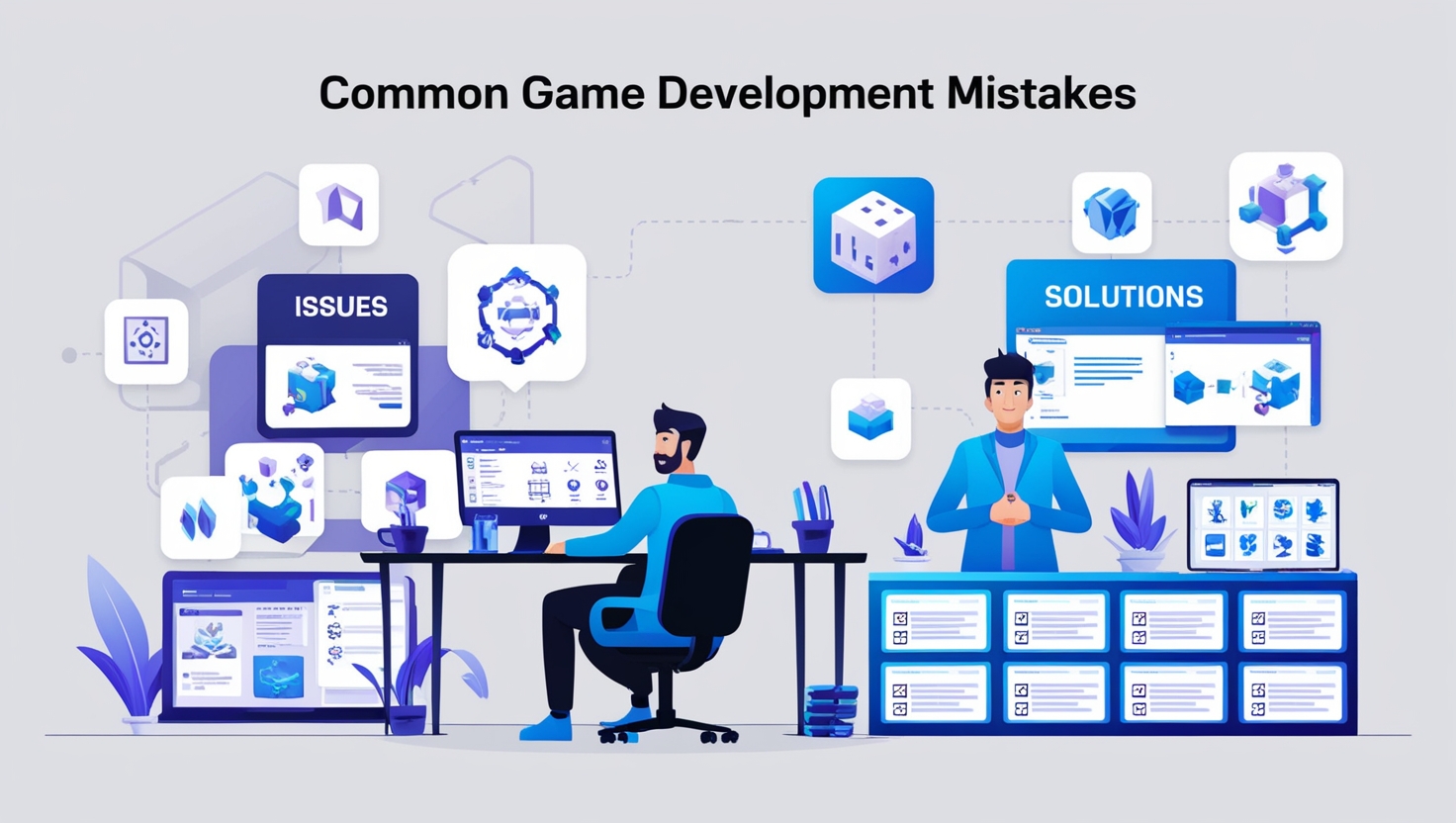
Unity is a powerful and accessible engine, but even experienced developers can fall into performance traps, scalability issues, or bad design habits. At Melior Games, we’ve worked on dozens of Unity projects—from mobile games to large-scale multiplayer titles, and we’ve seen firsthand how small oversights can lead to major problems.
Whether you’re just starting out or leading a full development team, here are the 10 most common Unity mistakes—and how to avoid them to build smoother, more efficient, and future-proof games.
1. 🧠 Misusing Update()
The mistake: Putting too much logic in the Update() method.
Why it’s bad: Update() runs every frame. Placing heavy or unnecessary operations here can quickly drain performance, especially on mobile devices.
How to fix it:
- Use InvokeRepeating(), Coroutines, or FixedUpdate() where appropriate.
- Group infrequent operations with timers or conditional checks.
2. 📦 Ignoring Object Pooling
The mistake: Constantly instantiating and destroying objects (e.g. bullets, enemies).
Why it’s bad: This creates memory spikes and garbage collection issues.
How to fix it:
- Use object pooling to reuse pre-instantiated objects.
- Unity’s built-in pooling tools (like IPoolable) or open-source libraries like Lean Pool can save tons of memory.
3. 🔍 Overusing Find() and GetComponent()
The mistake: Frequently calling GameObject.Find() or GetComponent() during gameplay.
Why it’s bad: These are expensive operations and can slow down your game dramatically.
How to fix it:
- Cache references in Start() or Awake().
- Use dependency injection or assign references via the Inspector.
4. 🧱 Poor Scene Organization
The mistake: Having messy hierarchies, unclear naming, or cramming everything into one scene.
Why it’s bad: Leads to confusion, bugs, and painful scaling as your project grows.
How to fix it:
- Follow naming conventions.
- Use empty GameObjects as folders.
- Split your game into multiple scenes (UI, gameplay, background, etc.) and use additive loading when needed.
5. 🎨 Ignoring Draw Calls and Batching
The mistake: Using too many unique materials, sprites, or unoptimized shaders.
Why it’s bad: Causes excess draw calls, lowering frame rate, especially on mobile and VR.
How to fix it:
- Use texture atlases and shared materials.
- Enable GPU instancing or dynamic batching.
- Optimize UI canvases to reduce overdraw.
6. 🔄 Not Handling Mobile & Platform Optimization
The mistake: Assuming your game will run the same across devices.
Why it’s bad: Performance varies drastically between Android and iOS, or between desktop and mobile.
How to fix it:
- Test frequently on real devices.
- Use Unity Profiler and Adaptive Quality settings.
- Implement platform-specific tweaks (e.g., resolution, shader variants).
7. 🧮 Overusing Physics or Colliders
The mistake: Using real-time physics or too many colliders for simple interactions.
Why it’s bad: Leads to unstable behavior and unnecessary CPU usage.
How to fix it:
- Use triggers instead of colliders when possible.
- Rely on animation or scripting for predictable movement.
- Minimize the use of Rigidbody and avoid OnCollisionEnter for constant checks.
8. 🧪 Skipping Modular Code and Prefabs
The mistake: Hardcoding values or duplicating logic instead of modularizing.
Why it’s bad: Makes your project harder to scale or debug.
How to fix it:
- Use ScriptableObjects for configuration data.
- Create reusable prefabs with adjustable parameters.
- Separate logic into components and design for reuse.
9. 🗂️ Mismanaging Asset Imports
The mistake: Importing assets at full resolution or wrong compression settings.
Why it’s bad: Bloats the project size and causes long loading times.
How to fix it:
- Compress textures and reduce resolution where needed.
- Remove unused assets before builds.
- Use Unity’s import settings to optimize models, sounds, and textures.
10. 🚫 Not Using Version Control
The mistake: Not backing up your project with Git or any source control.
Why it’s bad: One small mistake or crash can ruin hours (or days) of work.
How to fix it:
- Use Git with GitHub, Bitbucket, or Plastic SCM (Unity’s native solution).
- Always commit frequently with clear messages.
- Set up .gitignore properly to exclude unnecessary Unity files.
✅ Build Smarter with Melior Games
At Melior Games, we don’t just create Unity games—we optimize, scale, and future-proof them from day one. Our team of seasoned developers follows best practices in performance, architecture, and cross-platform design to ensure your game runs smoothly and succeeds in the market.
If you’re looking to build a polished Unity project—whether it’s mobile, multiplayer, AR/VR, or something experimental—we’re ready to bring your vision to life.
Let’s make something incredible together. Reach out to Melior Games today!




